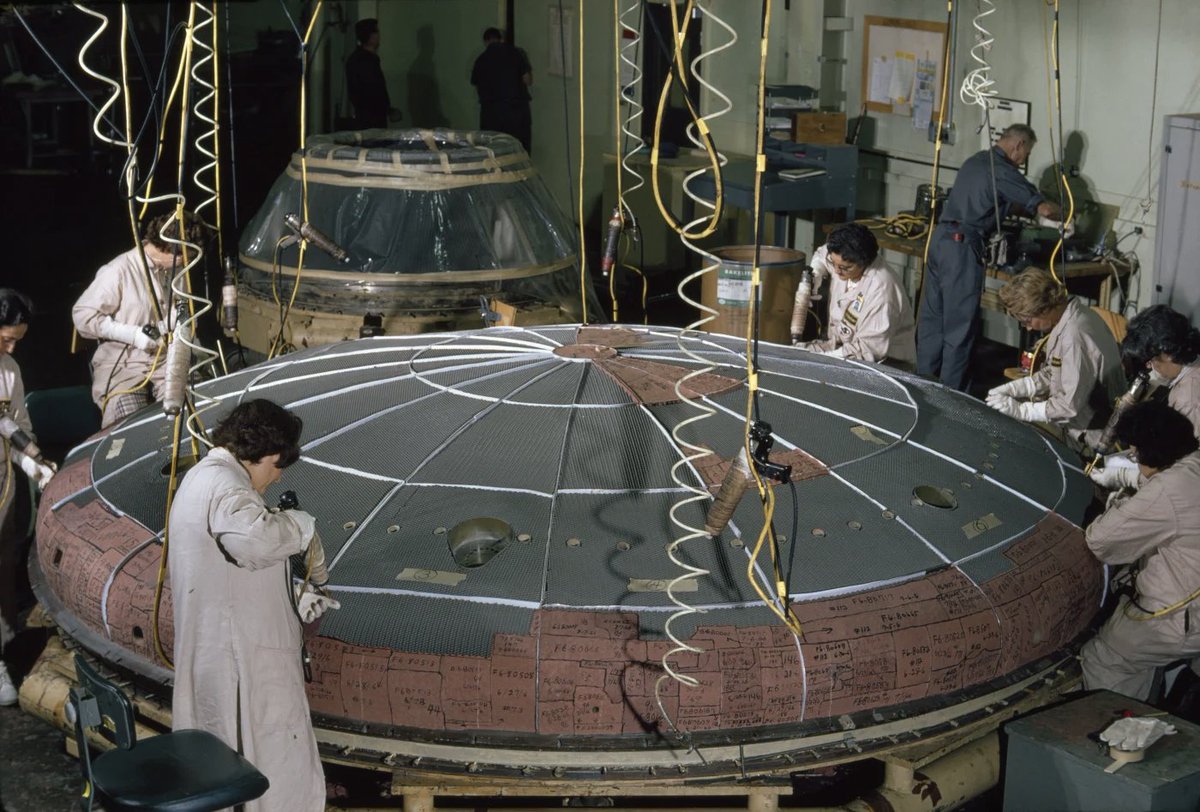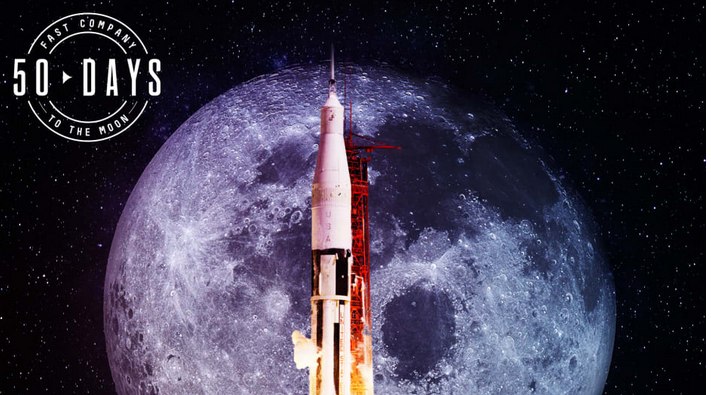The computers that flew Americans to the Moon 50 years ago were marvels—the smallest, fastest, most advanced computers ever.
But making them was a problem. No memory chips. No portable disk drives.
So their software was hand-woven by textile workers.
fastcompany.com/90363966/the-g…
But making them was a problem. No memory chips. No portable disk drives.
So their software was hand-woven by textile workers.
fastcompany.com/90363966/the-g…
2/ The flight computers only had 78k of memory (yes, less computing power than your microwave oven) — but every 1 and 0 in the software was an individual wire placed by a textile worker, at a Raytheon factory in Waltham, Mass.
See picture below.
#Apollo51
See picture below.
#Apollo51

3/ For Apollo, this combination of hand-crafting and advanced technology wasn't unusual.
The lunar rover.
The parachutes.
The spacesuits.
The heat shield.
All had hand-made elements.
(Heat shield being applied with caulk guns, below.)
fastcompany.com/90363966/the-g…
The lunar rover.
The parachutes.
The spacesuits.
The heat shield.
All had hand-made elements.
(Heat shield being applied with caulk guns, below.)
fastcompany.com/90363966/the-g…

4/ Imagine having to hand-weave the software for an advanced computer.
Every single wire had to be perfectly positioned, or some software program didn't work. It took 8 weeks to weave the software for one computer.
That story is #14 in my series on Apollo from last summer.
Every single wire had to be perfectly positioned, or some software program didn't work. It took 8 weeks to weave the software for one computer.
That story is #14 in my series on Apollo from last summer.
5/ Apollo manufacturing is a classic, hidden element of the challenge of flying to the Moon.
Scientists & engineers invented solutions for all the problems of getting to the Moon—but NASA couldn't wait for the manufacturing technology to come along.
Solution? Do it by hand.
Scientists & engineers invented solutions for all the problems of getting to the Moon—but NASA couldn't wait for the manufacturing technology to come along.
Solution? Do it by hand.
6/ Last summer, my series, '50 Days to the Moon' was an exploration of what it took to get to the Moon, for the 50th anniversary of the 1st landing.
This summer, those stories are a fresh inspiration: Ordinary Americans, rallied to a cause, can make the impossible possible.
This summer, those stories are a fresh inspiration: Ordinary Americans, rallied to a cause, can make the impossible possible.
7/ Whatever you are doing today, you are not weaving the wheels of a Moon vehicle, by hand, out of piano wire.
You are not sewing spacesuits, one meticulous stitch at a time, by hand.
(Almost all this Apollo Moon work was done by women.)
#Apollo51
fastcompany.com/90363966/the-g…
You are not sewing spacesuits, one meticulous stitch at a time, by hand.
(Almost all this Apollo Moon work was done by women.)
#Apollo51
fastcompany.com/90363966/the-g…
8/ The whole series, '50 Days to the Moon,' is collected @FastCompany. If you need a break, if you need a dose of Thu motivation, dip in.
The work it took to get to the Moon is astonishing. Ordinary people on Earth made it happen.
(The pieces are short.)
fastcompany.com/section/50-day…
The work it took to get to the Moon is astonishing. Ordinary people on Earth made it happen.
(The pieces are short.)
fastcompany.com/section/50-day…

• • •
Missing some Tweet in this thread? You can try to
force a refresh




